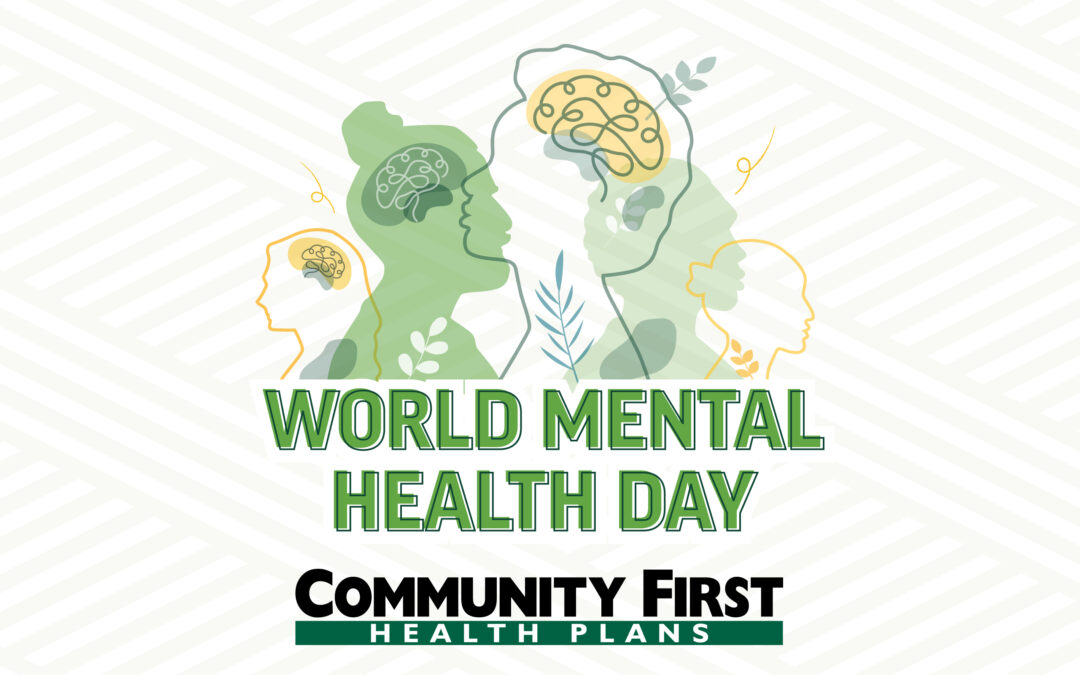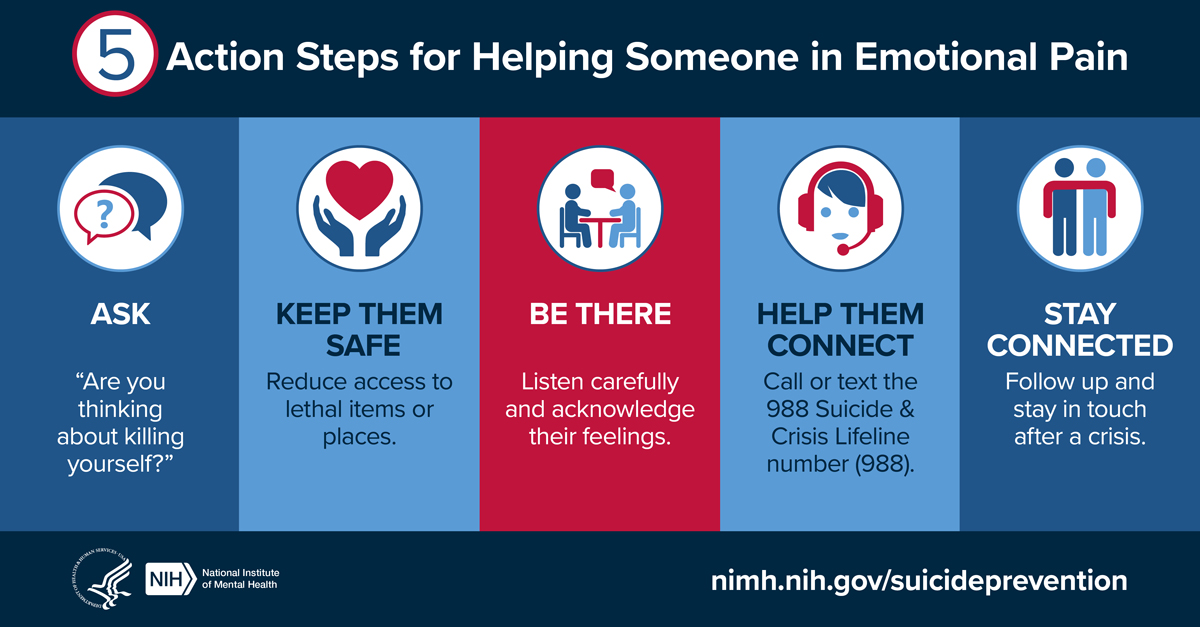Suicide is a complicated issue. It affects people of every race, nationality, ethnicity, and financial or marital status. Many factors can lead one to thoughts of self-harm or suicide. No two people experience the same struggle, so there is not one easy solution. However, there are many ways to help reduce the risk of suicide.
It’s important to also be aware of risk factors and warning signs, so you can identify when you may need to check in on a loved one or seek help for yourself. These are suicide prevention tips and resources for you or someone you know who may be in crisis.
Risk Factors
Identifying risk factors is one way to help prevent suicide. Some potential risk factors for suicide include:
Mental Health Conditions:
- Depression
- Bipolar disorder
- Schizophrenia
- Anxiety disorders
- Extreme aggression and being unable to connect with other people
Physical Health CONDITIONS:
- Chronic and/or serious health issues, including chronic pain and terminal illness
- Substance misuse or addiction
- Traumatic brain injury
Environmental Influences:
- Access to lethal means, such as firearms or drugs
- Stress brought on by sudden life changes, including divorce, job loss, financial crisis, or losing a loved one.
- Being bullied or harassed repeatedly or over a long period of time.
- Discrimination (for example, for race, gender identity, sexual orientation, ethnicity, or religion)
- Legal issues
Historical Factors:
- Family history of suicide
- Has attempted suicide in the past
- Childhood abuse, neglect, or trauma
Connect To Protect
There are some protective factors that can help prevent suicide. When someone feels connected, supported, and safe, they are less likely to attempt suicide. Here are some factors that can help.
- Access to mental health care, paying attention to mental health, including seeking treatment and/or medication
- Personal problem-solving skills and knowledge of ways to cope
- Strong connections to family, friends, and one’s community that create and support a sense of belonging
- Feeling supported in personal relationships with partners, family, and close friends
- Availability and accessibility of physical and mental health care
- Cultural or religious beliefs against suicide
- An identifiable “reason for living,” including family, pets, or a strong purpose in work or volunteer efforts
- Reduced access to lethal means
Warning Signs
There are often some warning signs when someone is feeling suicidal. If you notice any of these red flags in others or yourself, TAKE IMMEDIATE ACTION.
IF YOU/A LOVED ONE IS TALKING ABOUT:
- Killing oneself
- Feeling trapped, depressed, or hopeless
- Being a burden on others
- Not having a reason to live
- Discussing wanting to get lethal means, such as buying a gun
WHEN/IF CHANGES IN BEHAVIOR INCLUDE:
- Increased alcohol or drug use
- Angrier or more agitated than usual
- Depression/Fatigue/Anxiety
- Sleeping too much or not enough
- Less interest in activities or things they used to enjoy
- Calling or visiting people to say goodbye
- Giving away personal possessions
What to do if someone is at risk
IF YOU FEEL SOMEONE YOU LOVE IS AT RISK:
- Tell the person you are worried about them.
- Remove all lethal weapons and means.
- Discuss any reasons to live.
- Spend time doing something enjoyable, like an activity or an outing to a favorite place together.
- Suggest that they seek help. Tell them about 988.
- Help them find professional help.
- Suggest asking a mental health professional if medication might help.
IF YOU ARE IN CRISIS:
- Seek help! Call 988 and make an appointment with a professional for continued support.
- Call someone you know and trust. Tell them you are scared. Ask them to spend time with you or talk to you.
- Spend time with a beloved pet.
- Try to do some activity you enjoy, like listening to your favorite music or taking a walk in the park.
- Remember that you are not alone, and even when you don’t feel it, you mean a lot to many people.
We remember those friends, coworkers, or family members we have lost to suicide and we share this information to try and help those struggling. Help is available. View more resources below.
Helpful Resources
- Suicide Prevention Resource Center home page: 2024 National Strategy for Suicide Prevention
- The National Alliance on Mental Illness (NAMI): If in Crisis
- Community First Blog: When to Call 911 vs. 988
- Substance Abuse and Mental Health Service Association (SAMHSA): Find Support
- CDC: Suicide Prevention
- American Foundation for Suicide Prevention (AFSP): Warning Signs, Risk Factors, and Protective Factors


